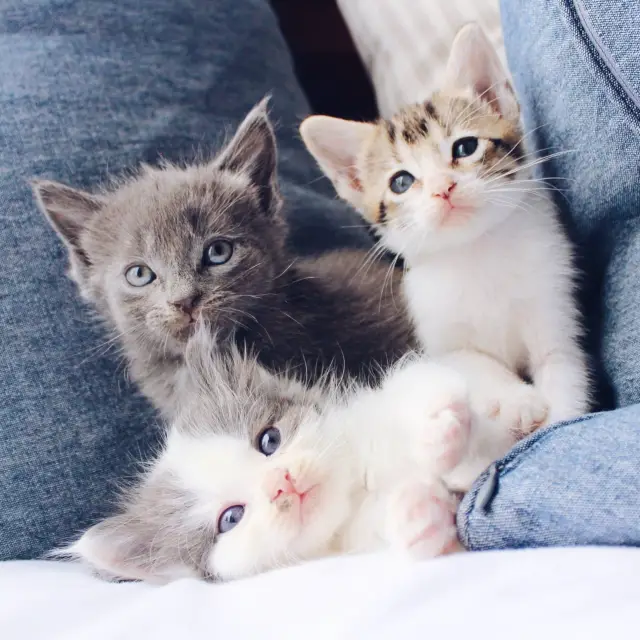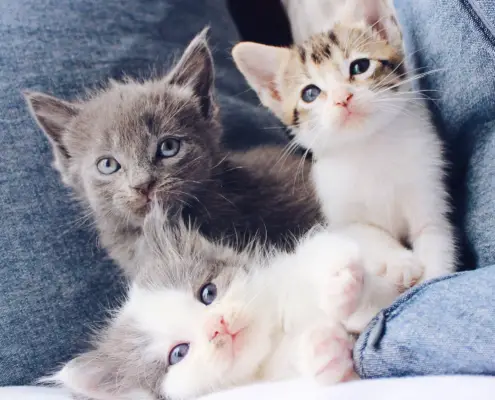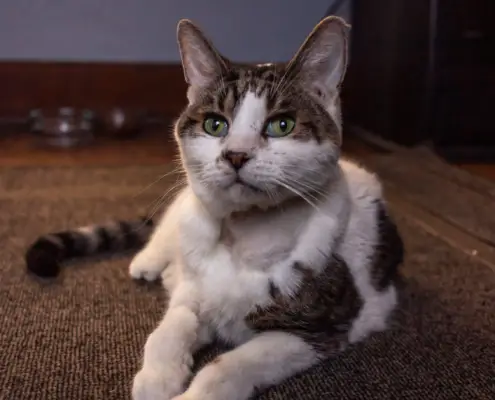
Cats, like humans, can be affected by changes in weather. From extreme temperatures to seasonal shifts, weather can have a significant impact on their health and well-being. Understanding how weather affects cats is crucial for taking proper care of your feline friend.
Cats are known for their ability to regulate body temperature, but extreme weather conditions can challenge this natural adaptation. In hot weather, cats are at risk of dehydration and heatstroke. On the other hand, cold weather can make cats vulnerable to hypothermia and frostbite. It’s essential to be aware of these risks and take appropriate measures to keep your cat safe.
Common Weather-Related Health Issues in Cats
Weather-related health issues can arise in cats due to changes in temperature, humidity, and other environmental factors. Hot weather can lead to heat exhaustion and heatstroke, causing symptoms such as excessive panting, drooling, and lethargy. Cats can also suffer from sunburn, especially those with light-colored fur or exposed skin.
In cold weather, cats may experience hypothermia, a condition in which their body temperature drops dangerously low. Frostbite is another concern, particularly in extremities like the ears, paws, and tail. It’s important to monitor your cat closely during extreme weather conditions and seek veterinary care if you notice any signs of discomfort or illness.
Signs That Your Cat Is Affected by the Weather
Cats may exhibit various signs when they are uncomfortable due to weather conditions. In hot weather, you might notice excessive grooming or seeking out cool spots in your home. Your cat may also become less active and show signs of dehydration, such as dry gums and decreased urine output.
During cold weather, cats may seek warm places to curl up or attempt to find shelter outdoors. They may shiver or exhibit signs of discomfort, such as reduced appetite and lethargy. Keep an eye out for these signs and make adjustments to your cat’s environment to help them cope with changing weather conditions.
Tips for Keeping Your Cat Comfortable in Hot Weather
When temperatures rise, it’s crucial to ensure that your cat stays cool and hydrated. Here are some tips to help your feline friend beat the heat:
- Provide plenty of fresh water in multiple locations around your home.
- Create cool areas by placing ice packs or frozen water bottles wrapped in towels for your cat to lie on.
- Keep curtains or blinds closed during the hottest parts of the day to block out direct sunlight.
- Set up a fan or air conditioner in a room where your cat spends most of their time.
- Groom your cat regularly to remove excess fur and promote airflow.
By implementing these measures, you can help your cat stay comfortable and reduce the risk of heat-related health issues.
Tips for Keeping Your Cat Warm in Cold Weather
Cold weather can be challenging for cats, especially those that spend time outdoors. To keep your cat warm and cozy during chilly seasons, consider the following tips:
- Provide a warm and insulated shelter for outdoor cats, with bedding and straw for added warmth.
- Keep your home at a comfortable temperature and provide cozy spots for indoor cats to curl up, such as blankets or heated beds.
- Dress your cat in a cat sweater or jacket for added warmth during outdoor activities.
- Avoid leaving your cat outside for extended periods during extremely cold weather.
- Check your cat’s paws for signs of frostbite and wipe them clean after being outdoors.
Taking these precautions will help protect your cat from the cold and ensure their well-being during winter months.
How to Protect Your Cat from Extreme Weather Conditions
Extreme weather conditions can pose serious risks to your cat’s health and safety. Whether it’s scorching heat or freezing cold, here are some general guidelines to protect your feline companion:
- Keep your cat indoors during extreme weather, providing a safe and comfortable environment.
- Monitor weather forecasts and plan outdoor activities accordingly to avoid the hottest or coldest parts of the day.
- If your cat must go outside, ensure they have access to shaded areas and fresh water.
- Consider using pet-friendly sunscreen on exposed areas of your cat’s skin during sunny days.
- During storms or severe weather, create a calm and secure space for your cat indoors.
By being proactive and mindful of extreme weather conditions, you can minimize the risks and keep your cat safe.
Seasonal Changes and the Impact on Cat Behavior
Seasonal changes can have an impact on cat behavior. Cats may exhibit different behaviors during specific seasons, such as increased activity during spring or more time spent indoors during winter. Understanding these changes can help you better meet your cat’s needs and provide appropriate stimulation.
During warmer months, cats may be more active and show a higher interest in exploring the outdoors. However, they can also be affected by allergies or pesky insects. In colder months, cats may prefer to stay warm indoors and may require additional playtime or interactive toys to prevent boredom.
Indoor Activities to Keep Your Cat Entertained During Inclement Weather
Inclement weather, such as heavy rain or snowstorms, can limit your cat’s outdoor activities. To keep them entertained and mentally stimulated during these times, consider the following indoor activities:
- Provide interactive toys, such as puzzle feeders or treat-dispensing toys, to keep your cat engaged and prevent boredom.
- Create a designated play area with scratching posts, climbing trees, and hiding spots.
- Engage in interactive play sessions using toys that mimic prey, such as feather wands or laser pointers.
- Set up window perches or bird feeders near windows to provide visual stimulation for your cat.
- Consider introducing a companion animal, such as another cat or a small dog, to provide social interaction.
By engaging your cat in stimulating indoor activities, you can help them stay entertained and prevent behavioral issues that may arise from being cooped up inside.
The Importance of Regular Veterinary Check-ups for Weather-Sensitive Cats
Weather-sensitive cats may require additional care and attention. Regular veterinary check-ups are essential to monitor their health and address any weather-related concerns. During these check-ups, your veterinarian can assess your cat’s overall well-being, provide necessary vaccinations, and offer guidance on weather-specific care.
Additionally, your veterinarian can recommend preventive measures, such as flea and tick prevention during warmer months or nutritional adjustments to support your cat’s immune system during seasonal shifts. Regular check-ups ensure that your cat receives the necessary care and support to stay healthy throughout changing weather conditions.
Conclusion
Understanding the effects of weather on cats is crucial for providing proper care and ensuring their well-being. By recognizing the signs that your cat is affected by weather conditions, implementing appropriate measures to keep them comfortable, and seeking regular veterinary check-ups, you can help your feline friend navigate changing seasons with ease. Remember, your cat relies on you to protect them from extreme weather and provide a safe and comfortable environment. By being a responsible and attentive owner, you can keep your beloved feline companion healthy and happy all year round.
If you enjoyed my article, I would appreciate you sharing it with your network.

Sima Ndlebe
Sima writes for CatBuzz. He is interested in Cats, Health and Fitness, and Entrepreneurship.
Published: 13 October 2023
Related Articles
Disclaimer
The content found on CatBuzz.org is presented on an "as is" basis and is intended for general consumer information and education purposes only. Any utilization of this information is voluntary and solely at the user's own risk.
None of the articles or content should be regarded as, or used in place of, veterinary medical advice, diagnosis, or treatment. The information provided on the website is purely for educational and informational intentions and should not be considered a substitute for professional guidance from a veterinarian or other qualified expert. The articles are designed to inform consumers about veterinary healthcare and medical matters that may impact their cat's daily life. It should be noted that this website and its services do not constitute the practice of any form of veterinary medical advice, diagnosis, or treatment. CatBuzz.org explicitly disclaims any liability for any direct or indirect damages or losses that may arise from the use of or reliance on the information contained within the content.
Consumers must consult a veterinarian, veterinary specialist, or another qualified veterinary healthcare provider when seeking advice regarding their cat's health or medical conditions. It is important not to ignore, avoid, or postpone seeking medical advice from a veterinarian or other qualified veterinary healthcare provider solely based on information obtained from this website. If you believe that your cat may be experiencing a medical issue or condition, it is imperative to promptly contact a qualified veterinary healthcare professional.



